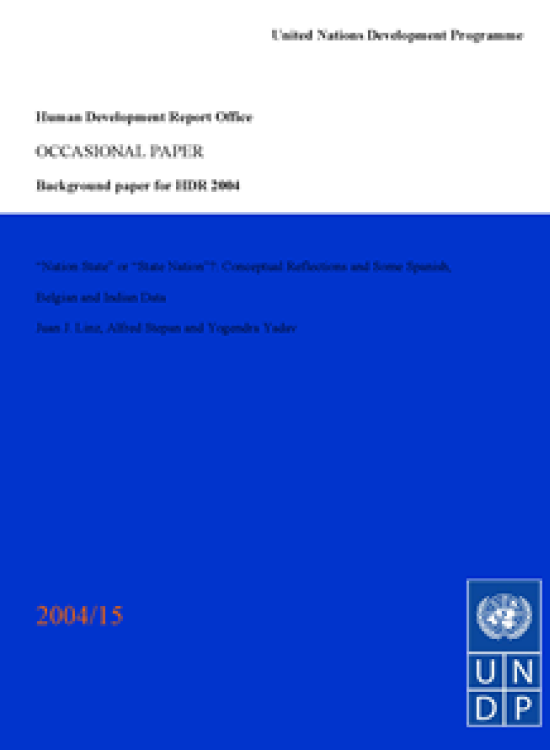“Nation State” or “State Nation”?
Conceptual Reflections and Some Spanish, Belgian and Indian Data

Download Report by Language
Document
hdr2004alfredstepan.pdf
(452.33 KB)
Citation
Linz, Juan J., Stepan, Alfred, Yadav, Yogendra. 2004. “Nation State” or “State Nation”?: Conceptual Reflections and Some Spanish, Belgian and Indian Data. New York.
“Nation State” or “State Nation”?
Conceptual Reflections and Some Spanish, Belgian and Indian Data
Posted on: January 01, 2004
One of the urgent conceptual, normative and political tasks of our day is to think anew about how polities that aspire to be political democracies can accommodate great cultural diversity within one state. Given the reality of cultural diversity in many of the polities of the world, the belief that many people have that every state should be a nation and every nation should be a state seems to us to be misguided and indeed dangerous since, as we shall argue, many states in the world today in fact contain more than one nation (or territorially-based cultural groups) within their boundaries. The belief that every state should be a nation reflects perhaps the most widely accepted normative vision of a modern democratic state, i.e. the “nation state.” After the French Revolution, especially in the 19th century, many policies were devoted to creating a unitary nation state in France in which all French citizens had only one cultural and political identity. These policies included a package of incentives and disincentives to ensure that French increasingly became the only acceptable language in the state. Political mechanisms to allow the recognition and expression of regional cultural differences were so unacceptable to French nation state builders that advocacy of federalism was at times a capital offense. Throughout France, state schools at any given hour were famously teaching the same curriculum with identical syllabi by teachers who had been trained and certified by the same Ministry of Education rules and tests.

